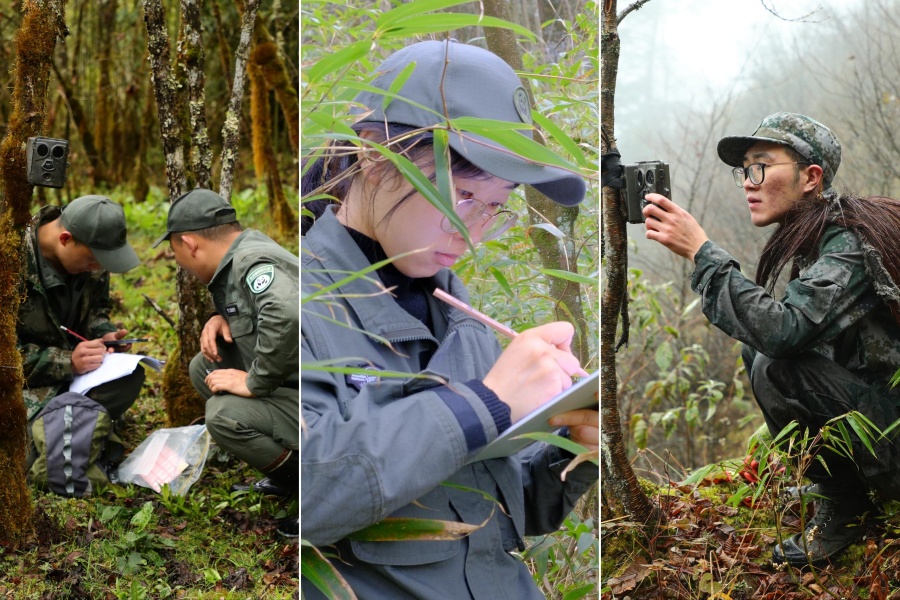Unseen heroes of the bamboo forests: the protectors of China's giant pandas
Young, grassroots patrollers promise a favorable living environment for the vulnerable species


Taking up the glove
Working in the dense mountain bamboo forests poses challenges and dangers. Sometimes, navigation is impossible. "We need to carve out a path," said Kang Jun, a 23-year-old patroller at the Yingjing county patrol station.
To ensure that patrollers are up to the task, they must pass a physical fitness and survival knowledge test. Kang signed up for the test in March last year when the station enrolled six patrollers. More than 120 others joined him.
During one portion of the test, patrollers are required to finish walking along a designated route within three hours. It took Kang, the native son of a rural area in Yingjing, only 56 minutes to reach the finish line.
He managed to earn the third-highest score among the test-takers, making him the youngest patroller at his station.
"I grew up in the mountains, so I get along with nature," Kang said.
Despite the hardships and dangers associated with being a patroller, Kang considers himself lucky to have the job. He likes being close to nature and taking in the free atmosphere of the forests.
Before each trip to the mountains, Kang makes complete preparations. In addition to a pair of rubber shoes, rain boots, two sets of patrol suits and a first-aid kit, Kang carries a satellite phone, a telescope and GPS navigation equipment.
According to Kang, carrying a heavy bag with all the equipment is bearable when the weather is fine, but the forests are tricky on rainy days. Patrollers can easily slip and get hurt.
Once, while approaching a river valley surrounded by cliffs, Kang and an older colleague came across several boars. With no way to escape, the duo had to climb trees and hope the beasts didn't stick around.
Not all of Kang's experiences have been so harrowing. He has witnessed a Chinese serow sleeping soundly in front of an infrared camera and a black-necked crane standing quietly to rest.
On one foggy day, Kang heard flapping wings and bird calls overhead. To his pleasant surprise, the fog soon dispersed, revealing a flock of majestic black-necked cranes hovering in the sky.
"I was so excited and kept taking photos," Kang said.
In addition to the wild animals in the mountains, Kang and his colleagues often come across wild vegetables and eggs.
They have the luxury of feasting on fresh wild vegetables, much to the envy of their neighbors back home who eat artificially grown vegetables.


















